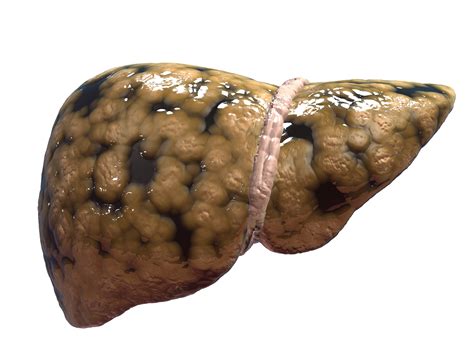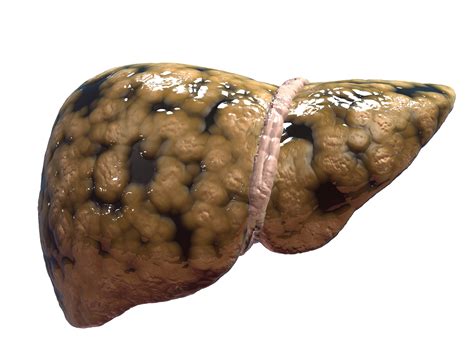

Fatty liver disease is a condition where fat builds up in the liver, causing inflammation and damage. Lifestyle changes may help reverse it.
According to recent studies, non-alcoholic fatty liver disease (NAFLD) is becoming increasingly common worldwide and is now considered one of the most prevalent chronic liver diseases globally. This condition can affect anyone, regardless of their age or gender, but it mostly affects people who are overweight or obese. In fact, experts estimate that up to 90% of people who are obese have fatty liver disease. However, don’t be fooled by the name – even people who are not overweight can develop this condition. As a result, it’s important to understand what causes this disease, its symptoms, and how it can be treated.
Daftar Isi
The Danger of Fatty Liver Disease
Fatty liver disease is becoming an increasingly common problem in the United States. As many as 25% of Americans have some degree of fatty liver disease, a condition that can lead to serious health problems if left untreated.
What is Fatty Liver Disease?
Fatty liver disease is a condition in which fat accumulates in the liver cells. This can cause inflammation and damage to the liver tissue, leading to scarring and potentially liver failure. There are two types of fatty liver disease: alcoholic and non-alcoholic. Alcoholic fatty liver disease is caused by excessive alcohol consumption, while non-alcoholic fatty liver disease (NAFLD) is associated with obesity, diabetes, and metabolic syndrome.
The Causes of Fatty Liver Disease
NAFLD is caused by a combination of factors, including an unhealthy diet, sedentary lifestyle, and genetics. Eating a diet high in saturated fat, sugar, and processed foods can increase the risk of developing NAFLD. In addition, being overweight or obese, having type 2 diabetes, or having high cholesterol or triglyceride levels can also increase the risk of developing NAFLD.
The Symptoms of Fatty Liver Disease
Many people with fatty liver disease do not experience any symptoms. However, some people may experience fatigue, abdominal pain, and swelling in the abdomen. If the condition progresses to liver fibrosis or cirrhosis, symptoms may include jaundice, itching, and fluid buildup in the legs and abdomen.
The Diagnosis of Fatty Liver Disease
Fatty liver disease is typically diagnosed through blood tests, imaging tests, and a liver biopsy. Blood tests can detect elevated liver enzymes, while imaging tests such as ultrasound, CT, or MRI can visualize the fat in the liver. A liver biopsy involves taking a small sample of liver tissue to examine for signs of inflammation and scarring.
The Treatment of Fatty Liver Disease
The treatment of fatty liver disease depends on the underlying cause. For alcoholic fatty liver disease, the most effective treatment is to stop drinking alcohol. For non-alcoholic fatty liver disease, lifestyle changes such as weight loss, exercise, and dietary modifications are often recommended. In some cases, medication may also be prescribed to help manage symptoms or reduce inflammation.
The Prevention of Fatty Liver Disease
Preventing fatty liver disease involves making healthy lifestyle choices. This includes maintaining a healthy weight, eating a balanced diet with plenty of fruits and vegetables, exercising regularly, and avoiding excessive alcohol consumption. Regular check-ups with a healthcare provider can also help detect any early signs of liver disease.
The Complications of Fatty Liver Disease
If left untreated, fatty liver disease can progress to more serious complications such as liver fibrosis, cirrhosis, and liver failure. These conditions can be life-threatening and may require a liver transplant. In addition, fatty liver disease increases the risk of developing liver cancer.
The Outlook for Fatty Liver Disease
The outlook for fatty liver disease depends on the severity of the condition and the underlying cause. With lifestyle changes and appropriate medical treatment, many people with fatty liver disease can improve their liver function and prevent further damage. However, those with advanced liver damage may require more intensive treatment and monitoring.
Conclusion
Fatty liver disease is a serious health concern that affects millions of Americans. By making healthy lifestyle choices and seeking medical treatment when necessary, it is possible to prevent and manage this condition. Regular check-ups and liver function tests can help detect any early signs of liver disease, allowing for prompt treatment and a better prognosis.
Fatty liver disease is a common health problem affecting millions of people worldwide. This condition arises when excess fat accumulates in liver cells and can contribute to inflammation, scarring, and liver damage. Here are 10 important things you need to know about fatty liver disease:Firstly, the causes of fatty liver disease vary and can be attributed to various factors such as excessive alcohol consumption, obesity, rapid weight loss, medications, and certain medical conditions. In many cases, the exact cause remains unclear.Secondly, symptoms of fatty liver disease may not appear at the early stages. However, as liver damage progresses, symptoms such as fatigue, abdominal pain, and yellowing of the skin may occur. It is important to seek medical attention if these symptoms persist.Thirdly, risk factors for developing fatty liver disease include obesity, type 2 diabetes, high blood pressure, and high cholesterol. Some genetic and lifestyle factors can also increase the risk. Maintaining a healthy lifestyle can help reduce the risk of developing this condition.Fourthly, diagnosis of fatty liver disease is done through various medical tests such as liver function tests, imaging tests like an ultrasound, or liver biopsy. A complete medical history is also considered to determine the cause of the disease.Fifthly, non-alcoholic fatty liver disease (NAFLD) is a common form of fatty liver disease that occurs when there is fat accumulation in the liver, without alcohol consumption as a contributing factor. NAFLD is closely linked to obesity and type 2 diabetes.Sixthly, alcoholic fatty liver disease (AFLD) is a type of fatty liver disease that arises due to heavy alcohol consumption. It can cause serious liver damage and lead to liver cirrhosis if not addressed.Seventhly, there is no specific cure for fatty liver disease, but lifestyle changes such as weight loss, a healthy diet, and regular exercise can be beneficial. In some cases, medications may be prescribed to treat underlying medical conditions that cause fatty liver disease.Eighthly, preventing fatty liver disease involves taking steps to minimize risk factors such as alcohol consumption, maintaining a healthy weight, eating a balanced diet, and exercising regularly. These lifestyle changes can also help manage the condition in those who have already been diagnosed.Ninthly, if left untreated, fatty liver disease can lead to liver damage, liver cirrhosis, and liver cancer. It can also increase the risk of developing cardiovascular disease and type 2 diabetes. It is important to seek medical attention if symptoms persist.Lastly, living with fatty liver disease requires making lifestyle changes to prevent further liver damage and associated complications. It is important to work with a healthcare professional to manage the condition and prevent long-term liver damage. By making small changes to your lifestyle, you can reduce the risk of developing or managing fatty liver disease.Fatty Liver: Understanding the Pros and ConsAs a journalist, it’s important to keep abreast of the latest health trends and issues. One such issue that has been making headlines is fatty liver disease. Here are some key points to consider:Pros:1. Early detection can lead to effective treatment: Fatty liver disease often goes unnoticed until it’s too late. However, if detected early, lifestyle changes and medication can help reverse the condition.2. Weight loss can help prevent and manage fatty liver disease: Maintaining a healthy weight through diet and exercise can help prevent fatty liver disease. For those who already have the condition, losing weight can improve liver function.3. Fatty liver disease is reversible: Unlike other liver diseases, such as cirrhosis, fatty liver disease is reversible in most cases.Cons:1. Fatty liver disease can lead to serious complications: If left untreated, fatty liver disease can progress to more serious conditions such as liver cancer and liver failure.2. The exact cause of fatty liver disease is unknown: While obesity and poor diet are known risk factors, the exact cause of fatty liver disease is still unknown.3. There are no specific medications for fatty liver disease: While lifestyle changes can be effective in managing the condition, there are currently no medications specifically designed to treat fatty liver disease.In conclusion, while fatty liver disease can be a serious condition, early detection and lifestyle changes can lead to effective management and even reversal. However, more research is needed to better understand the causes and potential treatments for this increasingly common disease.
As the saying goes, “you are what you eat”. Our diet plays a crucial role in our overall health and well-being. One of the most common health problems caused by unhealthy eating habits is fatty liver disease. This condition occurs when there is an accumulation of fat in your liver cells, which can lead to inflammation and scarring of the liver. If left untreated, it can progress to liver cirrhosis or even liver failure.
There are two types of fatty liver disease: alcohol-induced and non-alcoholic. As the name suggests, alcohol-induced fatty liver disease is caused by excessive consumption of alcohol. On the other hand, non-alcoholic fatty liver disease (NAFLD) is caused by factors such as obesity, insulin resistance, high blood sugar levels, and high levels of fats in the blood. NAFLD is becoming increasingly common, especially among people who are overweight or obese.
The good news is that fatty liver disease can be prevented and even reversed through lifestyle changes. Eating a healthy diet, maintaining a healthy weight, exercising regularly, and avoiding alcohol can all help prevent and reverse fatty liver disease. If you suspect that you may have fatty liver disease, it is important to speak with your healthcare provider for proper diagnosis and treatment.
In conclusion, fatty liver disease is a serious health condition that can have long-term consequences if left untreated. However, with the right lifestyle changes, it can be prevented and even reversed. By making healthier choices when it comes to our diet and lifestyle, we can protect our liver and improve our overall health and well-being.
Visit VideoPeople Also Ask About Fatty Liver1. What is fatty liver?Fatty liver, also known as hepatic steatosis, is a condition where excess fat accumulates in the liver cells. This can lead to inflammation and damage to the liver.2. What causes fatty liver?Fatty liver can be caused by a variety of factors including obesity, type 2 diabetes, high cholesterol, and alcohol use. In some cases, the cause may be unknown.3. What are the symptoms of fatty liver?Fatty liver may not cause any symptoms in the early stages. However, as the condition progresses, symptoms may include fatigue, abdominal pain, and swelling in the abdomen.4. How is fatty liver diagnosed?Fatty liver can be diagnosed through blood tests, imaging tests such as an ultrasound or MRI, and a liver biopsy.5. Is fatty liver reversible?In many cases, fatty liver is reversible with lifestyle changes such as weight loss, exercise, and a healthy diet. However, in some cases, medication or surgery may be necessary.Overall, it is important to speak with a healthcare provider if you have concerns about fatty liver or any other health condition.






